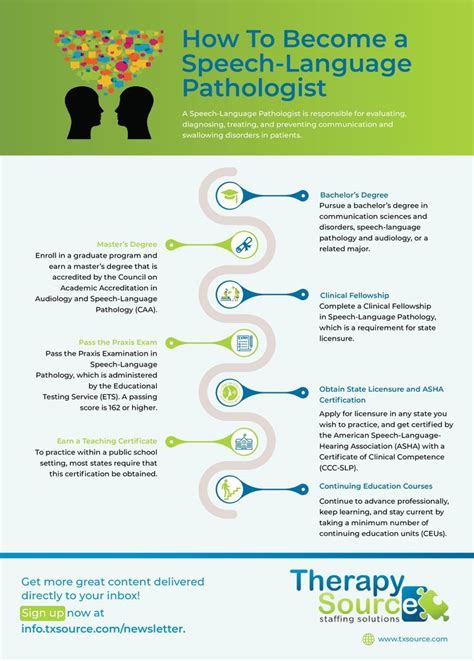How to Become a Speech-Language Pathologist: A Comprehensive Guide
Becoming a speech-language pathologist (SLP) is a rewarding career path for those passionate about helping others communicate effectively. It requires dedication, hard work, and a commitment to advanced education. This comprehensive guide outlines the necessary steps to achieve your goal.
1. Education: The Foundation of Your SLP Career
The journey to becoming an SLP begins with a strong educational foundation. This typically involves:
-
Bachelor's Degree: You'll need a bachelor's degree, ideally in communication sciences and disorders (CSD), speech-language pathology, or a related field. A strong GPA is crucial for acceptance into graduate programs. Focus on relevant coursework including biology, psychology, and linguistics.
-
Master's Degree: A master's degree in speech-language pathology is the minimum educational requirement for licensure. These programs are rigorous and typically take two years to complete. Expect coursework in areas like:
- Anatomy and Physiology: Understanding the physical mechanisms of speech and language.
- Phonetics and Phonology: The study of speech sounds and their patterns.
- Language Development: Understanding the acquisition and disorders of language.
- Speech Science: The physical production and perception of speech.
- Assessment and Intervention: Learning how to evaluate and treat communication disorders.
- Clinical Practicums: Hands-on experience working with clients under the supervision of experienced SLPs. These are essential for developing practical skills.
2. Clinical Practicum: Gaining Valuable Experience
Clinical practicums are an integral part of your master's degree. These supervised experiences allow you to apply your knowledge in real-world settings. Expect to work with diverse populations experiencing various communication disorders, including:
- Articulation disorders: Difficulty producing speech sounds.
- Fluency disorders: Stuttering or cluttering.
- Voice disorders: Problems with vocal quality, pitch, or loudness.
- Language disorders: Difficulties with understanding or using language.
- Cognitive-communication disorders: Communication challenges resulting from brain injury or other neurological conditions.
3. Licensure and Certification: The Legal Requirements
After completing your master's degree and clinical practicums, you'll need to obtain a license to practice as an SLP. The specific requirements vary by state, but generally include:
- Passing the Praxis Exam: This standardized exam assesses your knowledge and skills in speech-language pathology.
- State Application: Completing an application with your state's licensing board, often including background checks and fees.
- Continuing Education: Many states require ongoing continuing education credits to maintain your license.
4. Choosing Your Specialization: Focusing Your Career
Once licensed, you may choose to specialize in a particular area of speech-language pathology. Possible specializations include:
- Pediatric SLP: Working with children with communication disorders.
- Adult SLP: Working with adults who have experienced strokes, traumatic brain injuries, or other neurological conditions.
- School SLP: Providing services in schools to children with communication needs.
- Hospital SLP: Working in hospitals or rehabilitation centers.
- Private Practice SLP: Running your own private practice.
5. Networking and Professional Development: Staying Current
Joining professional organizations like the American Speech-Language-Hearing Association (ASHA) provides valuable networking opportunities, access to resources, and professional development opportunities. Staying updated on the latest research and best practices is crucial for success in this ever-evolving field.
Becoming an SLP: A Rewarding Journey
The path to becoming a speech-language pathologist is demanding but incredibly rewarding. By following these steps and dedicating yourself to your education and professional development, you can make a significant difference in the lives of others. Remember to research specific requirements in your state as regulations can vary.
